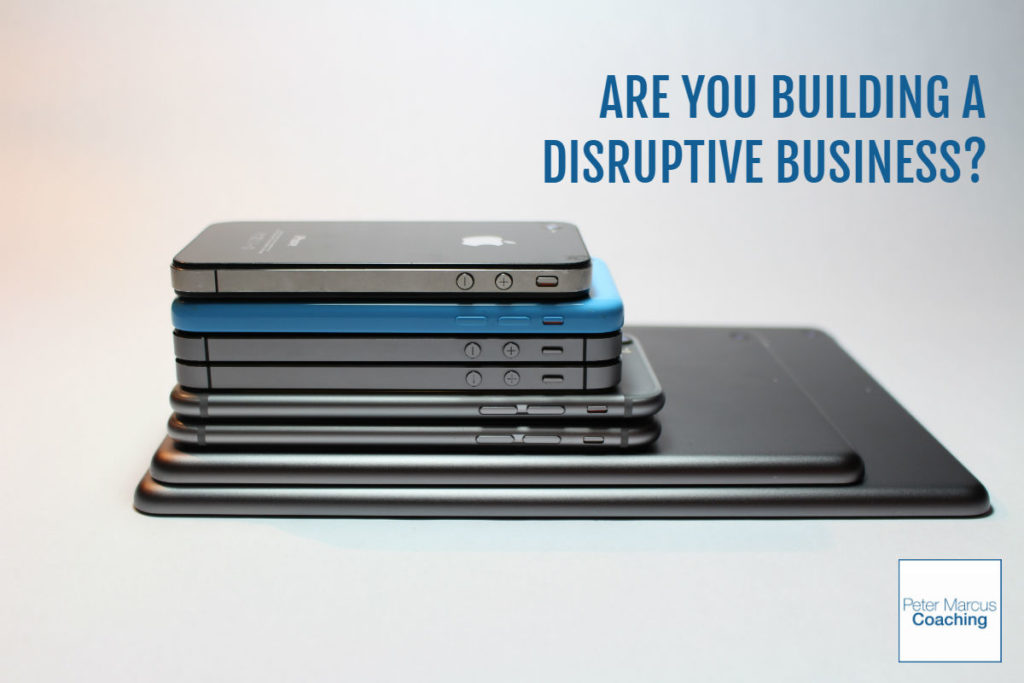Are you building a disruptive business?

Today, we would like to take a look at the innovation and technologies that create a new market and value network that has the potentials of disrupting an existing market and/or value network. If you have yet to explore this area of your enterprise, you may choose to discover today how it is more crucial than ever for companies to become learning organizations to stay relevant and have the cutting edge in an ever-changing marketplace.
There is no denying that competition in any industry is always getting tougher, technology will continue to advance, and customer preferences are shifting tremendously. This may impact your business more than you may be able to imagine.
We suggest that your organization consider taking the approach of continuous learning where you may choose to create an environment to help your employees wish to continually create, innovate, and acquire and transfer their knowledge. That way, your company may adapt to the unpredictable and the unforeseen faster than your rivals and competition, and you will be prepared for any challenges and obstacles along the way.
The benefits of having a learning organization are multifaceted, but the most substantial return on its adoption is the ability to create a new market and value. Fundamentally, it is disrupting your own existing market and value, often times disabling it or wiping it out entirely. For example, buying encyclopedia sets are a thing of the past. Now, you can search through Google for the information you need, or you order a set via Amazon versus going to a bookstore to buy them.
The market is, and always has been, there. When you witness changes and disruptions to existing markets and value, it is just a result of shifts brought on by disruptive business models that alter the way we value and utilize the market.
Disruptive business models
Disruptive business models put their focus on refining, creating, and optimizing a product or a service, or a role in an existing market. It is not about building a new market, but taking a current marketplace and moving it to a new place. The most successful learning organizations understand this and incorporate a disruptive business model to gain competitive value for their brand, and with that, stifle competition.
Some companies may want to have disruptive business models by taking out distributors and shipping a product directly to a consumer, such as subscription models like Birchbox and the Dollar Shave Club. As another example, here at BusinessLife Global, a part of our entity is based on a subscription model for coaching, via articles like this one, in our multi-language digital library.
Other entities of disruptive business models aim at moving online to compete with retail stores. If you have noticed in the last several years, retails stores have been closing down or needing to find new ways to compete as a result of being disrupted by online brands.
Think Blockbuster and Netflix, or Airbnb and the hotel industry. These exist in industries that have had to improve their services, their customer experiences, and prices to compete because of the disruptive business models that lay the foundations to industry change.
Companies that disrupt their own models
To retain the competitive edge, many successful companies and businesses have taken the leap and are willing to disrupt their own business models. They do to themselves what they would do to others, thus reinventing themselves at their own pace to move the market forward.
A prime example of successful businesses that were willing to disrupt their own model includes Apple and Netflix. Apple gave us the iPod and dominated the marketplace with it. Then, they turned around and made it obsolete by introducing the iPhone to the public. Netflix also created a brand by starting out delivering DVDs and later went on to make DVD rentals obsolete by building a streaming empire.
The concept seems simple enough, but can often be quite challenging as a whole. Your company may have been doing the same things, with the same methods, for the same outcome for so long. It may be struggling for some to make changes that may seem unfamiliar or even counterproductive. But, disruptive business models will always be just around the corner whether you choose to adopt them or not, and remember that individuals and organizations that adopt them provide cost effective efficiencies that allow clients or customers benefit.
By disrupting your own business model, you ensure that you stay at the lead and do not take a back seat to industry shifts as disruptive business models overtake your market.
How does this affect your business and what is the next step?
Apple, Amazon, and Netflix have set themselves up for success by disrupting their own businesses. They are innovators of disruptive business models. And, there is a good reason why they have become dominant brands in their industry.
As you consider applying disruption to your business model, you may have reservations about implementation. You can choose to view disruption as something you do to yourself – it can happen naturally in a progression or evolution to the way your business model is currently running.
Here at BusinessLife, we aim at helping your business by coaching your organization through changes and formulating a curriculum. Do you have any questions about disrupting your business or your industry? Contact me today to start a conversation, peter@marcuscoaching.com


